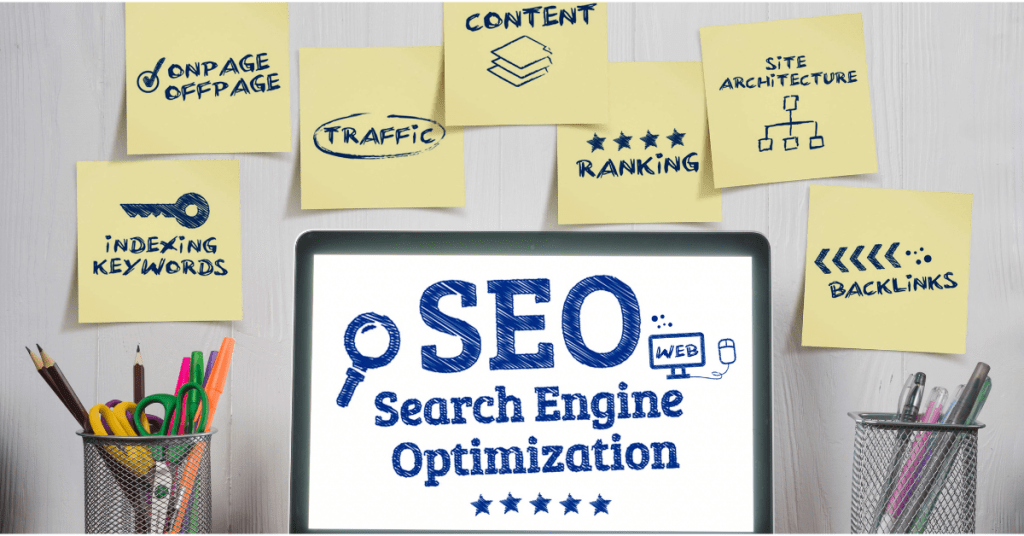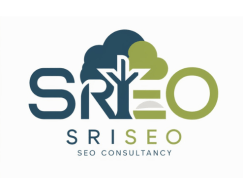Table of Contents
ToggleSearch Engine Optimization

What is SEO?
Search Engine Optimization, is a powerful tool which optimize your website so that it ranks higher on search engine results pages (SERPs). In simpler terms, it’s about making your website more visible to people who are searching for the products, services, or information you provide in search engines like Google, Bing and so on….. By implementing SEO strategies, you can unlock a multitude of benefits that will enhance your website’s visibility, attract targeted traffic, and ultimately drive conversions.
-
- Increased Visibility: One of the primary benefits of SEO is increased organic visibility on search engine result pages (SERPs). The higher you rank on SERPs, the more likely people visit your site. By optimizing your website’s content and structure according to SEO best practices, you can improve your rankings for relevant keywords and phrases. As a result, your website becomes more visible to potential customers who are actively searching for products or services related to your industry.
-
- Credibility and Trust: Websites that rank high are often perceived as more credible and trustworthy. Users think that websites that appear on the first page of search results as more trustworthy and reliable. By optimizing your website, you can build a positive brand reputation and establish yourself as an authority in your industry. This, in turn, leads to increased customer trust, higher brand recognition, and a competitive edge over your competitors.
-
- Better User Experience: Good SEO practices improve the usability and user experience of a website. Search engines prioritize websites that offer a positive user experience, including fast page loading speeds, intuitive navigation, and mobile responsiveness. A user-friendly website leads to increased engagement, longer visit durations, and improved conversion rates.
- Cost-Effective: Compared to traditional advertising methods, SEO provides a cost-effective marketing solution. While it requires an investment of time and resources to implement the strategies, the long-term benefits outweigh the initial costs. Organic search results are free, and once your website starts ranking higher, you can enjoy a continuous stream of targeted traffic without having to spend on individual clicks or impressions.
- Better User Experience: Good SEO practices improve the usability and user experience of a website. Search engines prioritize websites that offer a positive user experience, including fast page loading speeds, intuitive navigation, and mobile responsiveness. A user-friendly website leads to increased engagement, longer visit durations, and improved conversion rates.
Why you need SEO for your business?

Main elements of SEO:
So, how does one go about optimizing a website for search engines? Below are the key components while adopting search engine optimization techniques.
1. Keyword Research
Keywords are the foundation of SEO. They’re the words and phrases that people type into search engines. Our job is to figure out which keywords are relevant to your business and incorporate them into your website content to have good reach.
2. On-Page SEO
This involves optimizing individual pages on your website to rank higher and earn more relevant traffic. Key factors include:
-
- Title Tags
- Meta Descriptions
- Headings
- URL Structure
- Internal Links
3. Off-Page SEO
This focuses on increasing the authority of your domain through content creation and earning backlinks from other websites.
-
- Backlinks
- Social Signals
- Guest Blogging
4. Technical SEO
This involves optimizing the backend of your site to improve its foundation and the user experience.
-
- Site Speed
- Mobile-Friendliness
- XML Sitemap
- Robots.txt
5. Content
No matter how much you optimize the technical aspects of your site, without high-quality content, your efforts will fall flat. Content should be:
-
- Relevant
- Engage your audience
- Updated Regularly
6. Common Mistakes to Avoid:
Even with the best intentions, it’s easy to make mistakes. Here are some common pitfalls to watch out for:
- Keyword Stuffing: Overloading keywords – Don’t use keywords too many times in the content which will de rank the website.
- Ignoring Mobile Optimization: Now-a-days many people use mobiles to browse, so make sure the website or the pages should be mobile friendly/compatible.
- Duplicate Content: Having the same content on multiple pages can confuse search engines and put your rankings down.
- Neglecting Analytics: Not using tools like Google Analytics to track your progress can leave you in the dark about what’s working and what isn’t.

Pingback: Blog - On Page & Off Page SEO: Easy Explanation